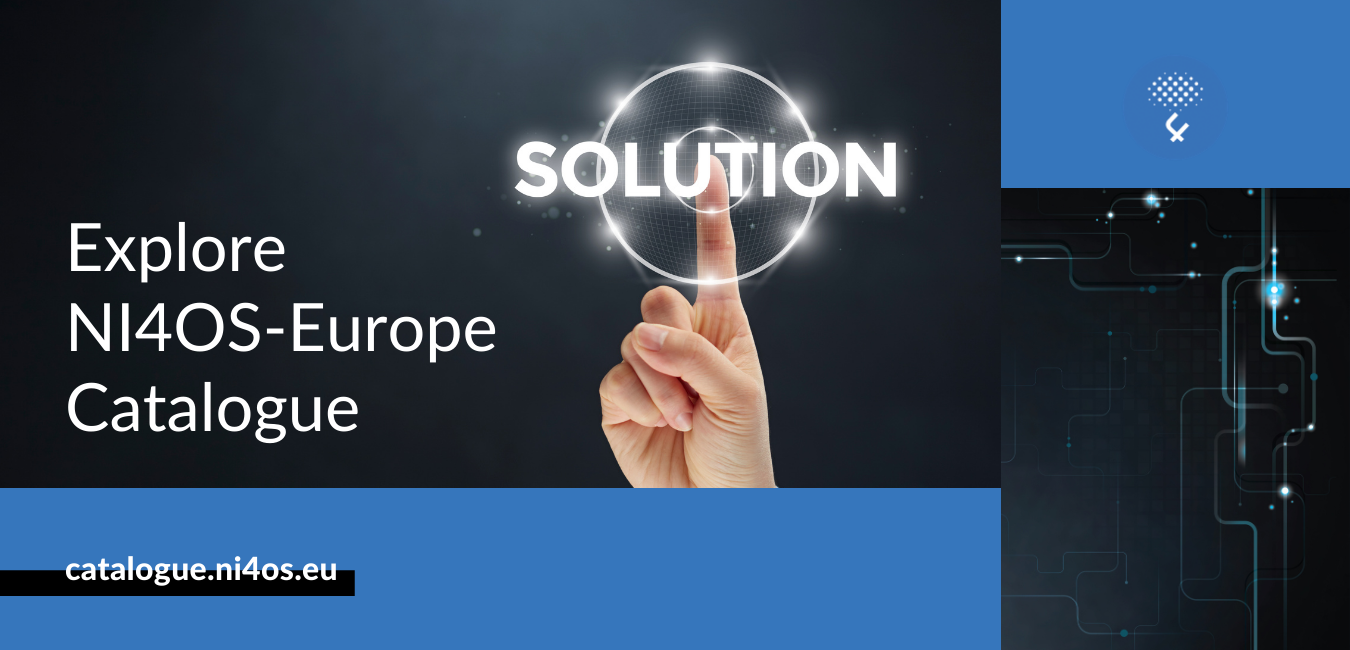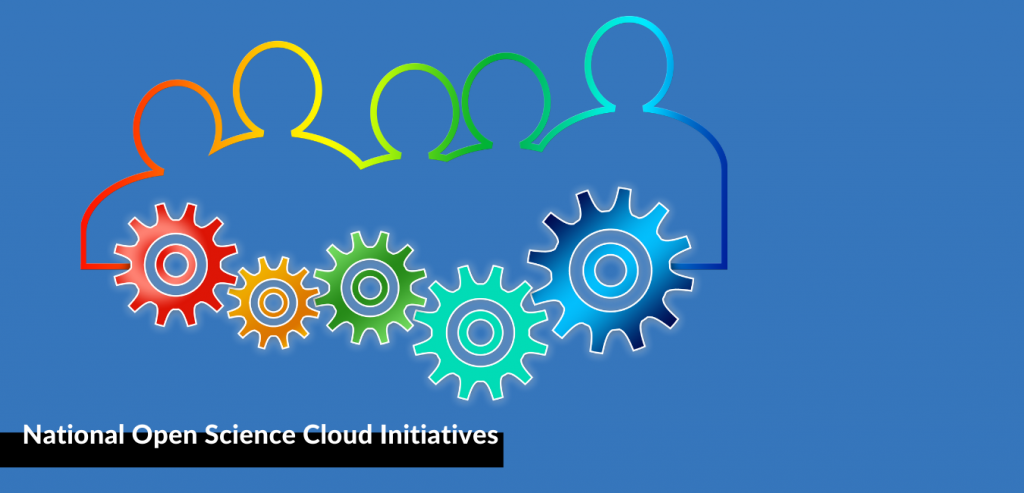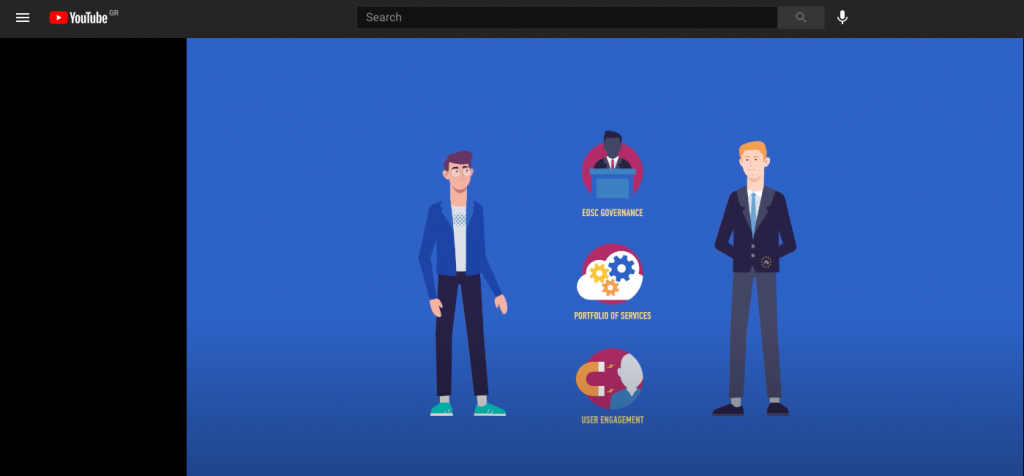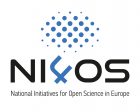September 2021 marked the completion of first two years of NI4OS-Europe: the second year of the project has been very fruitful in terms of achieving project objectives and producing outcomes of widest impact.

Despite the pandemic restrictions which were once again in force on a global level, it has been a very active year regarding online events (National Open Science Cloud Initiative {NOSCIs}, dissemination and training), as well as the active participation of NI4OS-Europe in international events (ESOF 2021, EOSC Symposium 2021, WACREN 2021, OSFair2021, PUBMET2021). There has also been a plethora of monthly Activity Management Board and Project Management Board meetings, which were conducted seamlessly online.
NI4OS-Europe excellence recognized: results from the 1st review by the EC
The first review of NI4OS-Europe project took place online on June 10th, with a lot of praise from the reviewers. The overall assessment was that the project has fully achieved its objectives and milestones for the period (Sep 2019 – Feb 2021). During these 18 months results have been produced with significant impact on the EOSC community at large and on stakeholders in the region. These results included both policy related results (e.g., recommendations for open science policies, proposals for rewards and incentives for FAIR and ORDM repositories) and related technical results (set-up of the pre-production environment, on-boarding of a number of repositories and services to EOSC, development of policy/legal tools)). The effective management and dissemination activities were praised by the reviewers, by having on one hand rich and frequent reporting and high quality on-time deliverables, and on the other hand achieving dissemination KPIs and a strong commitment to the active communication of the project’s results.
NI4OS-Europe catalogue : Strengthening the EOSC service portfolio

The NI4OS-Europe service catalogue populates the EOSC portfolio with services originating from the SEE region, enabling high-quality research of scientists working in a number of fields by providing them with access to generic and thematic services, as well as data and publication repositories. Within NI4OS-Europe, the services have been equipped with clearly defined terms of use, access and privacy policies, and user manuals. The NI4OS-Europe pre-production environment provides an integration testbed to ensure high availability of services via a monitoring system and high-quality support via a helpdesk system. Up to now there are 76 registered services within the catalogue and 35 are fully on-boarded (10 generic services, 10 thematic services, 8 repositories, 7 pre-production).
NOSCIs: Towards the realization of national Open Science Cloud ecosystems in the SEE area

When it comes to the National Open Science Cloud Initiatives (NOSCIs), the fundamental guidelines were set with the creation of D2.2 National OSC initiatives model that constitutes a comprehensive guide, the “Blueprint”, which can be further customized by any Member State and Associate Country and can be used as a valuable tool to advance national OSC, support the establishment of different types of national initiatives at different levels of maturity, monitor their progress and facilitate the governance of EOSC. Moreover, two supportive documents of the Blueprint have been produced to facilitate the procedure: “Workflows for setting up a NOSCI – checklist” and “Indicators for the NOSCIs establishment – checklist”. Since then there has been significant progress, with NI4OS-Europe team targeting to launch 15 national initiatives in the area. To this endeavor the webinar “Tools and examples for building NOSCIs and connecting them to EOSC” has been conducted, during which the blueprint for NOSCIs’ establishment was presented and two meetings for capturing the progress and updates of each partner country and possible questions were carried out, so as to lay the foundations for the NOSCIs.
NI4OS-Europe contribution to support EOSC governance
NI4OS-Europe contributed to the development of the EOSC core documentation by supporting the members of the EOSC Governance Board (GB), Executive Board (EB), EOSC working groups and individual partners. Specifically, NI4OS-Europe supported inputs for the FAIR Lady (olim Iron Lady) report, the Strategic Research and Innovation Agenda (SRIA) and the EOSC partnership proposal. Moreover, the project supported the multi-layered, interim governance structure of EOSC that was set up from November 2018 to steer and oversee the implementation of the EOSC from 2019-2020 until the establishment of the EOSC Association. NI4OS-Europe representatives participated actively at the Landscape, Architecture, Skills & Training and Sustainability Working Groups and at the Landscape, Service on Boarding (chair), National Policies (chair), FAIR data and Infrastructures, Dissemination & Events, Training and skills Task Forces. NI4OS-Europe supported the development of numerous reports and participating directly to the EOSC Working Groups, either advising the EOSC GB and EOSC EB Members.
In addition, the project has greatly facilitated the establishment of the EOSC Association from the procedural point of view. Since the EOSC Association’s first steps, NI4OS-Europe members from GRNET were taking part in the development and drafting of the statutes which cover the minimum required legally for the setting up of the EOSC Association. After the signature of the Statutes, NI4OS-Europe representatives participated officially to the EOSC Association Bylaws Working Group (WG).
Through the liaison activities described in Deliverable 2.3, NI4OS-Europe contributed to supporting EOSC governance and ensuring inclusiveness on the European level.
NI4OS-Europe meets European Commission for Open Science developments
In the framework of the meeting between GRNET and European Commission in Athens on September 15th, NI4OS-Europe Coordinator Dr. Ognjen Prnjat together with the project team of GRNET experts met Dr. Konstantinos Glinos, Head of Unit for Open Science of the Directorate-General for Research and Innovation of the European Commission. Among other issues, the implementation of initiatives and actions for Open Science at national and European level have been discussed. Dr. Glinos referred explicitly to the European Commission’s vision for Open Science, while NI4OS-Europe coordinator presented how the project actively supports 15 countries of South-Eastern Europe in their participation into the EOSC ecosystem, the creation of the NOSCIs, as well as their contribution to the EOSC service portfolio and EOSC governance. At this occasion, Dr. Prnjat was honoured to accept the invitation to become one of the European Commission’s experts in the G7 Open Science sub-WG on Interoperability and Sustainability of Infrastructures.
New NI4OS-Europe tools
The portfolio of data management was enriched with two new tools. In the first half of 2021 the RePol – Repository Policy Generator tool was developed, which is an open-source web application created to ease the process of drafting repository policies. Soon after the third tool RoLECT was released, which aims to assist prospective resource providers in verifying adherence to the RoP (Rules of Participation) during the onboarding process of resources to the EOSC ecosystem, focusing on the Legal and Ethics Requirements.
Community outreach

During the 2nd year, the project continued the efforts for dissemination and community outreach. A promotional video, 3 social media campaigns, 3 project newsletters, 5 brochures, 2 posters, 3 interviews with local EOSC community members, 18 training workshops, 80 blog posts in NI4OS-Europe website have been delivered throughout this period of time. Despite the impact of COVID-19, events and training continued online. All project outcomes have been made openly available for others to re-use and have been additionally promoted through dedicated campaigns, webinars, social media and the project video. Several key results (such as incentives, the blueprint for setting up NOSCIs, as well as training resources) have been translated to several languages to further increase accessibility of these outputs.
